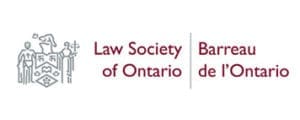Constitutional law — Charter of Rights — Fundamental justice — Self-incrimination — Accused charged under Criminal Code with leaving scene of accident — Provincial legislation requiring persons involved in traffic accident to complete accident report — Whether accused’s statements made under compulsion in traffic report admissible in criminal proceedings — Canadian Charter of Rights and Freedoms,
The respondent was involved in an accident and reported it to the police by telephone the next day. A police officer attended at her home and she told him her version of the accident. The officer then read her Charter rights to her. The respondent then spoke to her lawyer and subsequently advised the officer that she, on her lawyer’s advice, would not provide a statement with respect to the accident. In response to a question by the officer, the respondent confirmed some elements of her previous statements. The officer then advised her, however, that even though she was not required to provide a written statement, she would be required to provide a statement, if requested by the police, under the Motor Vehicle Act and that that statement could not be used against her in court. The respondent was later charged with failing to stop at the scene of an accident under s. 252(1)(a) of the Criminal Code. At trial, the Crown sought to adduce evidence of the three conversations that the respondent had had with the police; elements of the conversations linked the respondent to the accident. On a voir dire, the respondent stated that she knew immediately on being involved in an accident that she was under a duty to report it. She stated that she felt the officer had attended at her premises to take an accident report and that she was under a duty to speak to him about the accident and that she felt so obligated even after speaking with her lawyer.
The trial judge, even though he found the respondent’s statements to be voluntary, allowed a defense motion as to an infringement of s. 7 (self-incrimination as part of fundamental justice) and excluded the statements under s. 24(1) (appropriate and just remedy) of the Canadian Charter of Rights and Freedoms. A motion to dismiss the charge on the basis that the Crown had adduced no evidence as to the identity of the person driving the vehicle involved in the accident was granted. The Court of Appeal dismissed a Crown appeal on the s. 7 issue. The primary issue here is whether the admission into evidence in a criminal trial of statements made by the accused under compulsion of the Motor Vehicle Act offends the principle against self‑incrimination embodied in s. 7 of the Charter.
In this pivotal case, the Supreme Court of Canada delved into the intricate conflict between provincial statutory requirements and constitutional rights, specifically focusing on the right against self-incrimination under the Canadian Charter of Rights and Freedoms. This case serves as a critical study for any criminal lawyer addressing the complexities of statutory compulsion and constitutional protections.
The legal dispute began when Joann Wright, following a traffic accident resulting in a fatality, reported the incident to the police, adhering to what she believed were her obligations under the British Columbia Motor Vehicle Act. These compulsory statements were later intended to be used against her in a criminal prosecution for failing to stop at the scene of the accident.
Central to the case was Section 7 of the Charter, which safeguards an individual’s right to life, liberty, and security of the person, including the principle against self-incrimination. This principle asserts that individuals should not be forced to incriminate themselves, an issue that becomes complex when statutory duties to report are considered.
The judicial process highlighted the tension between these statutory duties and Charter rights. At trial, despite the voluntary nature of Wright’s statements to the police, the judge recognized their compulsory context under provincial law and excluded them from the trial, citing a potential violation of the Charter’s protections against self-incrimination. This decision was affirmed by the Court of Appeal and later upheld by the Supreme Court of Canada.
The Supreme Court’s judgment emphasized the adversarial nature potentially embedded within police interactions during statutory reporting, particularly when such interactions could lead to criminal investigations. This relationship was deemed potentially coercive, as it places undue pressure on the individual, thereby infringing on the right against self-incrimination if such statements are used in criminal proceedings.
This landmark ruling elucidates the critical balance required between upholding statutory duties and protecting constitutional rights. For criminal lawyers, this decision underscores the importance of vigilance in ensuring that procedural requirements do not override fundamental justice principles. It stresses that while the state has legitimate interests in mandating accident reports for public safety and regulatory compliance, these interests must be carefully balanced against individual rights as protected under the Charter.
In conclusion, this case reaffirms the robust protections offered by the Canadian Charter of Rights and Freedoms against self-incrimination, particularly in contexts involving statutory compulsion. It serves as a vital reference for criminal lawyers, offering insights into navigating cases where legal duties intersect with constitutional protections, ensuring that the principles of fundamental justice are not compromised by statutory obligations.
 Canadian criminal law case law consists of court rulings and decisions from past judicial hearings and appeals.
Canadian criminal law case law consists of court rulings and decisions from past judicial hearings and appeals.




